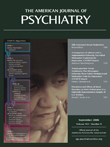It is not clear for whom this book is written, but it may be valuable for people with serious mental illness and their family members who are struggling to determine the place of mainstream psychiatry in their lives.
Dr. Whitwell is a British psychiatrist who has worked a lifetime in acute psychiatry and has re-evaluated his work in light of the recent influence of the recovery movement. In a sort of epiphany, Dr. Whitwell advances the theory that the keys to recovery lie not in traditional psychiatric treatment but in the individual’s own efforts and in his or her environment. Psychiatry is relegated, in his present vision, to a role in providing safety and support in urgent and dangerous situations. A consequence of this view is his opposition to involuntary outpatient psychiatric treatment.
This is a personal account and a staunchly nonacademic book. The author rejects evidence-based medicine in favor of “clinical judgment.” There are few references and no index. Unfortunately the nonacademic nature of Dr. Whitwell’s work lays him open to accusations of provincialism. Little is included in the book if it has not impinged directly on the author’s practice. Consequently, there is no mention of any of the models which, in recent decades, have expanded the possibility of recovery for people with mental illness. We find no mention of American models such as the psychosocial clubhouse or supported employment, which have done much to enhance consumer empowerment, competitive employment, and social inclusion, or of European models such as social firms—businesses with a social mission to employ people with psychiatric and other disabilities—that have become a powerful rehabilitation force in many countries around the world. The author pays scant attention to the treatment innovations (originally British) of cognitive-behavioral therapy for psychotic symptoms and family psychosocial intervention, both of which are included in the updated treatment recommendations promulgated by the Schizophrenia Patient Outcomes Research Team
(1) . The neglect of such valuable approaches leaves the reader more pessimistic than he or she needs to be about the contributions of modern mental health approaches to the possibility of the recovery of good functioning, quality of life, and meaning in life for people with serious mental illness.
Dr. Whitwell does pick up on a European development about which he is enthusiastic—the Hearing Voices Network, developed by the Dutch psychiatrist, Marius Romme—referring to it as “a major social breakthrough.” He is right to emphasize the importance of this pan-European movement that connects people with mental illness with the much larger group of people with no mental disorder who regularly hear voices. The movement provides a normalizing and socially inclusive opportunity to discuss the phenomenon and meaning of auditory hallucinations, something which is of immediate concern to many people with serious mental illness. As Dr. Whitwell comments, the hearing voices work “returns autonomy to the individuals” and allows them to develop “an understanding of their voices that ...[is]...more helpful than the usual neuro-psychiatric explanation” (p. 71). American patients will be well served if this movement expands into North America as vigorously as it has diffused in Europe.
The author makes a useful contribution in questioning the “doctor knows best” paternalism that discourages patients from taking charge of their illnesses, but he misses the opportunity in this book to foster the optimism that is a fundamental element of the recovery movement.

